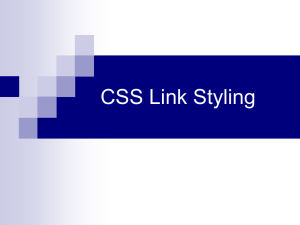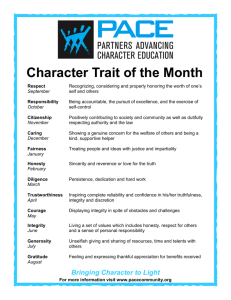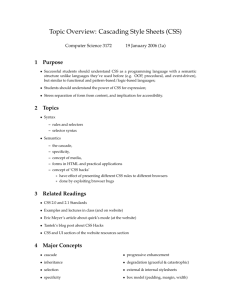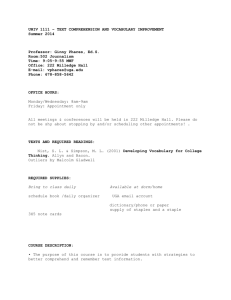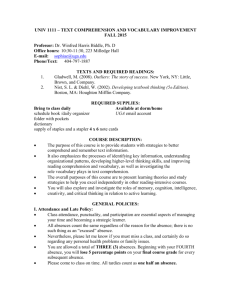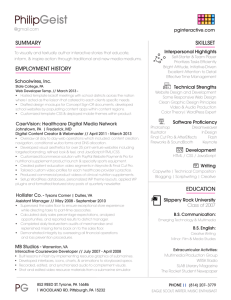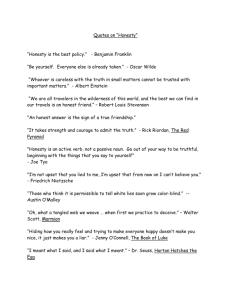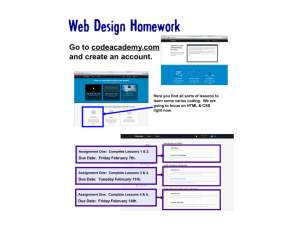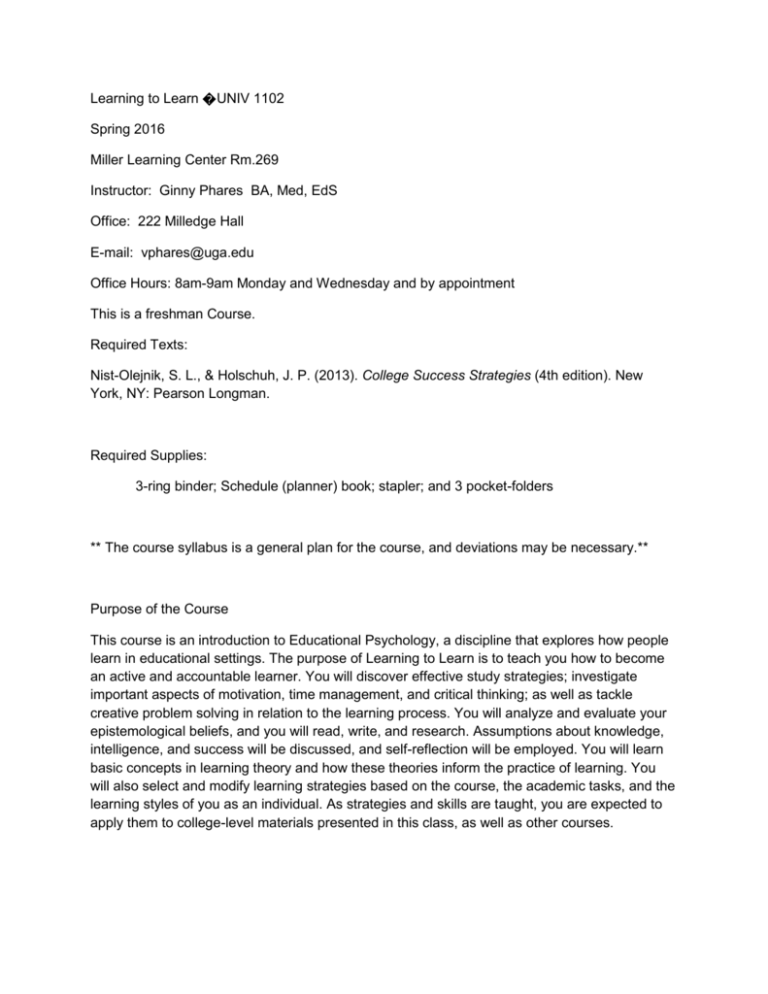
Learning to Learn � UNIV 1102
Spring 2016
Miller Learning Center Rm.269
Instructor: Ginny Phares BA, Med, EdS
Office: 222 Milledge Hall
E-mail: vphares@uga.edu
Office Hours: 8am-9am Monday and Wednesday and by appointment
This is a freshman Course.
Required Texts:
Nist-Olejnik, S. L., & Holschuh, J. P. (2013). College Success Strategies (4th edition). New
York, NY: Pearson Longman.
Required Supplies:
3-ring binder; Schedule (planner) book; stapler; and 3 pocket-folders
** The course syllabus is a general plan for the course, and deviations may be necessary.**
Purpose of the Course
This course is an introduction to Educational Psychology, a discipline that explores how people
learn in educational settings. The purpose of Learning to Learn is to teach you how to become
an active and accountable learner. You will discover effective study strategies; investigate
important aspects of motivation, time management, and critical thinking; as well as tackle
creative problem solving in relation to the learning process. You will analyze and evaluate your
epistemological beliefs, and you will read, write, and research. Assumptions about knowledge,
intelligence, and success will be discussed, and self-reflection will be employed. You will learn
basic concepts in learning theory and how these theories inform the practice of learning. You
will also select and modify learning strategies based on the course, the academic tasks, and the
learning styles of you as an individual. As strategies and skills are taught, you are expected to
apply them to college-level materials presented in this class, as well as other courses.
Learning Objectives
By the end of the course it is expected that you will have developed:
� a greater understanding of yourself and your own personal learning characteristics.
� an awareness of the different types of study strategies to be used in different content areas.
� the ability to select study strategies based on the course and the academic tasks.
� the ability to modify selected study strategies based on the course and the academic tasks.
Attendance Policy and Assignment Expectations
Please come to class on time. Class attendance, punctuality, and participation are an important
part of managing your time and becoming a strategic learner. Unlike other courses, in which you
can get someone else�s notes if you are absent, Learning to Learn requires much more
interactive class participation. It is important to be in class to participate in discussions and
group activities, to practice strategies that are modeled, and to receive specific directions for
various assignments. Absences will count against you. More than 5 will result in reducing your
average by a letter grade.I call roll daily.
Therefore, in this class, all absences count the same regardless of the reason for the absence.
School needs to be one of your top priorities. You are responsible for assignments whether or
not you are in class the day they are assigned or the day they are due. If you are planning to
miss class for any reason and wish to receive credit for an assignment due that day -you must
get the assignment to me before class. Work will not be accepted late unless you have a
documented, rare emergency. In the case of a rare emergency, e-mail me as soon as possible
in order for us to reach an agreement on how and when you will turn in your work. Chapter
quizzes will be unannounced and often. They may be after the chapter is covered in class or on
the day the chapter is to be covered. Always be prepared.
University Honor Code
All students are responsible for maintaining the highest standards of honesty and integrity in
every phase of their academic careers. The penalties for academic dishonesty are severe and
ignorance is not an acceptable defense. �Academic Honesty� means performing all academic
work without plagiarism, cheating, lying, tampering, stealing, receiving unauthorized or
illegitimate assistance from another person, or using any source of information that is not
common knowledge.
�Academic Dishonesty� means knowingly performing, attempting to perform, or assisting any
other person in performing any academic work that does not meet this standard of academic
honesty. Assistance by another, when authorized by the Faculty Member, will not be considered
academically dishonest, nor will use of information that is fairly attributed to the source.
All academic work must meet the standards contained in �A Culture of Honesty.� Students are
responsible for informing themselves about those standards before performing any academic
work. The link to more detailed information about academic honesty can be found at:
http://www.uga.edu/honesty/
GRADING SCALE
A 90-100 4.0
A- 89�3.7
B 80-88 3.0
B- 79
B+88/89
C 70-78 2.0
D 60-69 1.0
F <60 0
GRADING
Grades will be determined using a point system and will be weighted as follows: Quizzes &
Assignments 80%
Internet/ Library/ APA Project 20%
TENTATIVE COURSE SCHEDULE (Changes may occur as necessary.)
Week 1 and Week 2 : Review Syllabus And getting to know everyone
Differences between high school and college
CSS 1
Outliers
We will cover a chapter each week until the book is completed. A take home test will
accompany the book.
Who am I
Active Learning CSS 2
Theories of Memory
Week 3 and 4How you learn CSS 3
Interacting with Professors CSS 4
Managing your self and your time CCS 5
Week 5and 6
Motivation
CSS 6 pp. 58-68
Test on CSS chapters 1-6
Week 7 and 8
Belief systems that influence learning
CCS 7
CCS 8 Stress
Week 9 and 10 CSS 9 Individual presentations
Week 11 and 12 Project Internet/ Library/APA project

